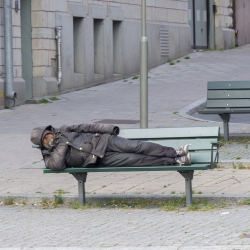To provide the best experiences, we use technologies like cookies to store and/or access device information. Consenting to these technologies will allow us to process data such as browsing behaviour or unique IDs on this site. Not consenting or withdrawing consent, may adversely affect certain features and functions.
The technical storage or access is strictly necessary for the legitimate purpose of enabling the use of a specific service explicitly requested by the subscriber or user, or for the sole purpose of carrying out the transmission of a communication over an electronic communications network.
The technical storage or access is necessary for the legitimate purpose of storing preferences that are not requested by the subscriber or user.
The technical storage or access that is used exclusively for statistical purposes.
The technical storage or access that is used exclusively for anonymous statistical purposes. Without a subpoena, voluntary compliance on the part of your Internet Service Provider, or additional records from a third party, information stored or retrieved for this purpose alone cannot usually be used to identify you.
The technical storage or access is required to create user profiles to send advertising, or to track the user on a website or across several websites for similar marketing purposes.
 Innovation-oriented industries and talent concentration are driving urban and real estate recovery, with notable hot spots in parts of the US, Europe and Asia, according to JLL’s new report, Innovation Geographies (registration). The authors claim that cities that perform best on these measures will be best positioned for economic growth post-pandemic, demonstrating a strong link between innovation, talent ecosystems and real estate performance. (more…)
Innovation-oriented industries and talent concentration are driving urban and real estate recovery, with notable hot spots in parts of the US, Europe and Asia, according to JLL’s new report, Innovation Geographies (registration). The authors claim that cities that perform best on these measures will be best positioned for economic growth post-pandemic, demonstrating a strong link between innovation, talent ecosystems and real estate performance. (more…)








 Nearly two-thirds of employees who claim to have experienced a toxic workplace culture say the compensation they received did not make up for the emotional distress caused, according to new research from
Nearly two-thirds of employees who claim to have experienced a toxic workplace culture say the compensation they received did not make up for the emotional distress caused, according to new research from 
 Decades of declining change in the UK labour market has reduced the risk of damaging job losses, but also limited opportunities for pay-enhancing job moves, according to
Decades of declining change in the UK labour market has reduced the risk of damaging job losses, but also limited opportunities for pay-enhancing job moves, according to 
 That’s right. A New Year and still
That’s right. A New Year and still 
 According to
According to 
 Four out of ten employers (42 percent) from across the UK have admitted they would likely seek to terminate an employees’ contract if they were homeless, despite nearly one in four households in England being at risk of or experiencing homelessness, claims a new report by
Four out of ten employers (42 percent) from across the UK have admitted they would likely seek to terminate an employees’ contract if they were homeless, despite nearly one in four households in England being at risk of or experiencing homelessness, claims a new report by 


 Research released by
Research released by 
 The
The 
 The pandemic has not led to mass unemployment as many feared, but has instead driven wider shifts that have increased employment among younger women, but pushed many men and older workers out of the labour market altogether, according to new research.
The pandemic has not led to mass unemployment as many feared, but has instead driven wider shifts that have increased employment among younger women, but pushed many men and older workers out of the labour market altogether, according to new research. 
 International law firm, Kingsley Napley, have recently moved to Twenty Bonhill Street, London. The new space has been designed with an ‘activity-based’ flexible working model in mind. This entailed creating a range of spaces which suit the various tasks that are necessary in a modern law firm.
International law firm, Kingsley Napley, have recently moved to Twenty Bonhill Street, London. The new space has been designed with an ‘activity-based’ flexible working model in mind. This entailed creating a range of spaces which suit the various tasks that are necessary in a modern law firm. 








January 17, 2022
Is your office worth the journey it takes to get to it?
by Despina Katsikakis • Comment, Flexible working, Property